-
 +3 +2
+3 +2Vanderberg Imaging Supplies | Vandeberg Imaging Supplies | +254 720 556 824
Vanderberg Imaging Supplies | The #1 Printer Repair Service provider in Nairobi, Kenya. We also sell printers & spare parts + repair courses.
-
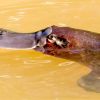 +38 +5
+38 +5What’s the secret of genetic equality between the sexes? New platypus chromosome research may hold the key
Females have twice as many copies of some genes as males do – and exactly how different species manage this imbalance has puzzled scientists for decades.
-
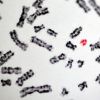 +22 +3
+22 +3Modern human DNA contains bits from all over the Neanderthal genome – except the Y chromosome. What happened?
A mysterious century-old law of genetics may explain the puzzling genetic legacy of our extinct Neanderthal cousins.
-
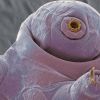 +36 +6
+36 +6Scientists Discover How Tardigrades Survive Blasts of Radiation, And It's Weird
Tardigrades are possibly the most indestructible animal on Earth.
-
 +26 +10
+26 +10Beethoven’s DNA reveals he just wasn’t that musical
Analysis of Beethoven’s DNA has revealed that he had a low genetic predisposition for beat synchronization, an ability that’s closely related to musicality. This is according to researchers who set out to show how making genetic predictions for individuals, including famous historical figures, can…
-
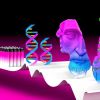 +27 +3
+27 +3Inkjets Are for More Than Just Printing
Inkjet technology has found a host of applications beyond putting dots on paper. It can now be used to make DNA microarrays for genomics, create electrical traces for printed circuit boards, and build 3D-printed structures.
-
 +23 +5
+23 +5Glow way! Bioluminescent houseplant hits US market for first time
Engineered petunia emits a continuous green glow thanks to genes from a light-up mushroom.
-
 +50 +7
+50 +7We May Have Been Completely Wrong About The Origins of Syphilis in Europe
When Italian explorer Christopher Columbus and his Spanish troops returned to Europe from the Americas in the late 15th century, they notoriously brought back the deadly pathogen responsible for syphilis.
-
 +36 +7
+36 +7Amazing Discovery Reveals Why You Didn't Get Your Dad's Mitochondria
Virtually every animal on Earth can thank their mother for the energy that fuels each of their cells.
-
 +39 +5
+39 +5Bats may hold the evolutionary secret to beating cancer
Scientists have discovered that bats possess an extraordinary capacity to fight off infections and avoid cancer.
-
 +26 +6
+26 +6Somalis with albinism: Pelted with stones and raw eggs
People with albinism are tackling prejudice, while the diaspora is helping to makes their lives easier.
-
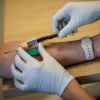 +31 +5
+31 +5Parkinson’s breakthrough as blood test could help develop cure
The new blood test could allow Parkinson’s disease to be diagnosed and treated earlier
-
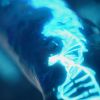 +22 +5
+22 +5The 'weird' male Y chromosome has finally been fully sequenced. Can we now understand how it works, and how it evolved?
The Y chromosome is a never-ending source of fascination (particularly to men) because it bears genes that determine maleness and make sperm. It’s also small and seriously weird; it carries few genes and is full of junk DNA that makes it horrendous to sequence.
-
 +43 +10
+43 +10Police Are Getting DNA Data From People Who Think They Opted Out
Forensic genetic genealogists skirted GEDmatch privacy rules by searching users who explicitly opted out of sharing DNA with law enforcement.
-
 +25 +4
+25 +4'He was horrific!': Nearly two thirds of family historians are distressed by what they find – should DNA kits come with warnings?
Researching family history is a popular hobby. But hobbyists can find themselves unearthing details of ancestors behaving badly or treated cruelly – or family secrets and trauma.
-
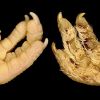 +15 +2
+15 +2Scales or feathers? It all comes down to a few genes
A UNIGE team shows how specifically modifying gene expression causes feathers to replace scales in the chicken.
-
 +3 +1
+3 +1Study reveals unique molecular machinery of woman who can’t feel pain
The biology underpinning a rare genetic mutation that allows its carrier to live virtually pain-free, heal more rapidly and experience reduced anxiety and fear, has been uncovered by new research from UCL.
-
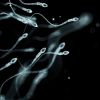 +11 +3
+11 +3Scientists believe these are the reasons for falling sperm counts
Researchers have looked at nearly 27,000 studies to identify the biggest factors causing sperm damage. This is what they found. Men’s reproductive capacity has fallen drastically in recent decades - and a new analysis of thousands of studies has revealed the factors that pose the biggest risk to sperm quality.
-
 +15 +4
+15 +4Their stories were lost to slavery. Now DNA is writing them
A project in Charleston, South Carolina, is using DNA to trace the African roots of three dozen people buried in the late 1700s
-
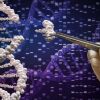 +23 +5
+23 +5Next-level CRISPR gene editing: No viruses required
Modified viruses have proven a handy way to get CRISPR/Cas9 gene editing materials into the nucleus of cells – but they're expensive, difficult to scale and potentially toxic. Now, researchers have found a non-viral approach that does the job better.
Submit a link
Start a discussion




















